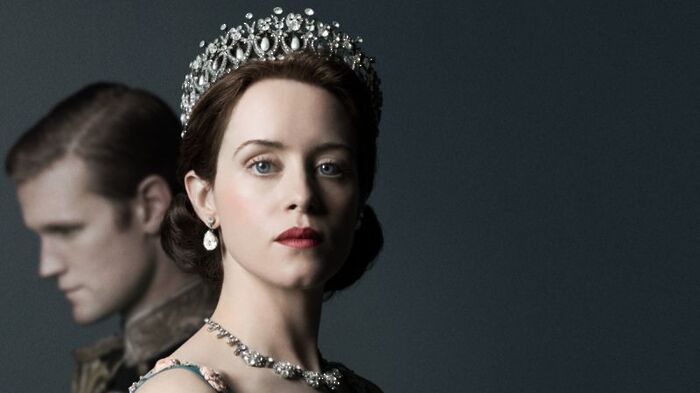Feud: Bette and Joan review: ‘the shade abounds’
Reflecting on a series tracing the battle between Bette Davis and Joan Crawford, Rachel Tsang finds much delight in their petty disputes and career-long antagonism.

In its ostensible purpose, to provide an entertaining glimpse into a conflict between two screen legends, Feud succeeds. The world these two created in their single film together, Whatever Happened to Baby Jane? (1962), and the similarly fantastical Hollywood they inhabited in real life, are recreated shot by painstaking shot.
“Either brilliantly thoughtful or beguilingly dishonest”
As Bette Davis and Joan Crawford, Susan Sarandon and Jessica Lange respectively are more than credible. These two leads are buoyed by an equally assured supporting cast: the performance of Jackie Hoffman as Crawford’s housekeeper Mamacita, movingly devoted and sassily dead-pan in turn, should be singled out for especial praise.
And of course, the shade abounds. Biting one-liners, petty monologues, put-downs, and bust-ups are giddily interwoven into the fabric of this production. In a particularly stylish turn, one episode ends with Bette and Joan stalking off to their dressing rooms in a perfectly symmetrical frame, slamming their doors with a mortal synchronicity.
However, since so little of Feud’s more scintillating happenings may be verified, one must imagine that much of what plays out is, at best, the hazy recollections of various octogenarians, and, at worst, pure invention. Fortunately, the most crucial concern, that the spirit of these people is effectively conveyed, is generally met.

The only seriously flawed characterisation is arguably that of Olivia de Havilland. For neither in her many films, nor within any interview setting, has de Havilland been seen as she is realised here. Catherine Zeta-Jones’s grandiloquently vapid sexpot is a shoddy imitation of the real woman – an actress always of subtle elegance and an indomitable spirit. Frankly, it is no wonder that she has decided to sue.
“The blazing star-quality of their respective personas prevailed”
The other players in this tale are afforded no such luxury. As it is, however, Feud seems to generally do well in maintaining both the drama its audience so craves, and a semblance of what happened as we best understand it. Nevertheless, the show is at its best during the quietly charged moments sprinkled among the excess.
The two women’s viewing of the dailies is one such scene. Sitting at opposite ends of the projection room, Bette and Joan are provoked to a poignantly similar reaction – whether by the power of their own performances or the horror of their physical appearances is left unsaid.
Feud often takes it upon itself to inform us that Bette was the most celebrated talent of her day, and Joan the most beautiful, and it was the essential fact that each envied the position of the other that led to this feud. Leaving aside the sweeping simplicity of this contention, though, it is surprising that the summit from which they fall is never explored in any great depth.
More importantly, the sheer gravity of these two women is never quite conveyed. The blazing star-quality of their respective personas prevailed even into their old age, and shone through, however dimly, even in the most terrible films into which they were shunted near the end.
Throughout the series, Feud seems to favour the private much more so than the public side of these women. Seeing that both were so thoroughly public institutions in their lifetimes and beyond, this decision is a surprising one. Yet from the two highly similar and most devastatingly personal incidents of all – the scathing memoirs about their mothers, written by the eldest daughters of Crawford and Davis respectively – Feud mysteriously shirks.
Years after the filming of Baby Jane, we see Bette approached by a man hoping to make a work about the feud between Crawford and Davis, a work very much like the one playing out before us. Sarandon nails the polite but wholly forthright response one would expect of Davis herself: she explains, with an exasperation she does not bother to hide, that if this fellow is after bitchy one-liners about Crawford, he does so in vain. Crawford was a professional, and Bette has nothing bad to say.
In one fell swoop, Ryan Murphy seems to negate all that he has put before us, and colours any enjoyment we may have derived from it. The final episode of the series is titled, ‘You Mean All This Time We Could Have Been Friends?’ – a fitting quote for an episode that re-traces the steps of the series to contemplate what might have been.
All of a sudden, many of our own assumptions are quietly overturned. Were public and private are more blurred than we realised? Could mortal enmity equally have been a mutual commitment to their feuding roles? Feud is either brilliantly thoughtful or beguilingly dishonest. Like the narrative and the women it portrays, the not-knowing may well be part of the fun
 Music / The pipes are calling: the life of a Cambridge Organ Scholar25 April 2025
Music / The pipes are calling: the life of a Cambridge Organ Scholar25 April 2025 Arts / Plays and playing truant: Stephen Fry’s Cambridge25 April 2025
Arts / Plays and playing truant: Stephen Fry’s Cambridge25 April 2025 Comment / Cambridge builds up the housing crisis25 April 2025
Comment / Cambridge builds up the housing crisis25 April 2025 Interviews / Dr Ally Louks on going viral for all the wrong reasons25 April 2025
Interviews / Dr Ally Louks on going viral for all the wrong reasons25 April 2025 News / Candidates clash over Chancellorship25 April 2025
News / Candidates clash over Chancellorship25 April 2025






